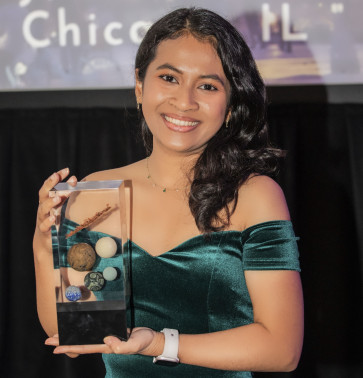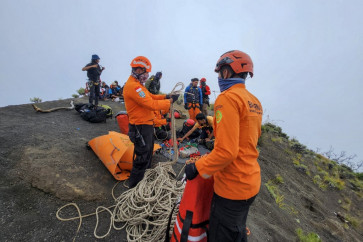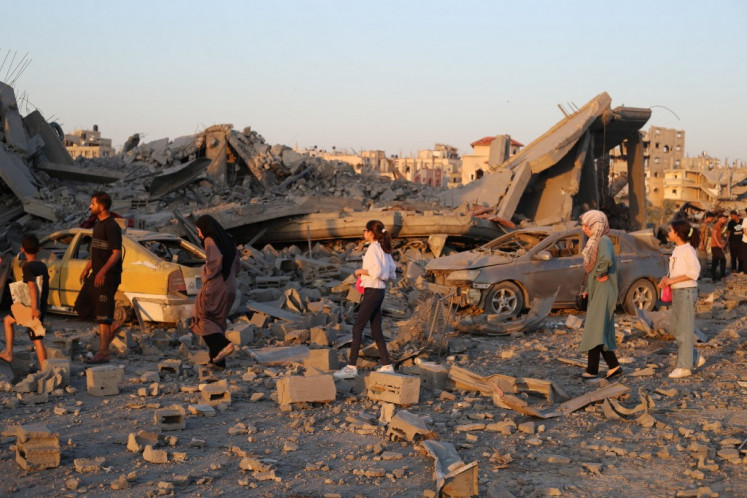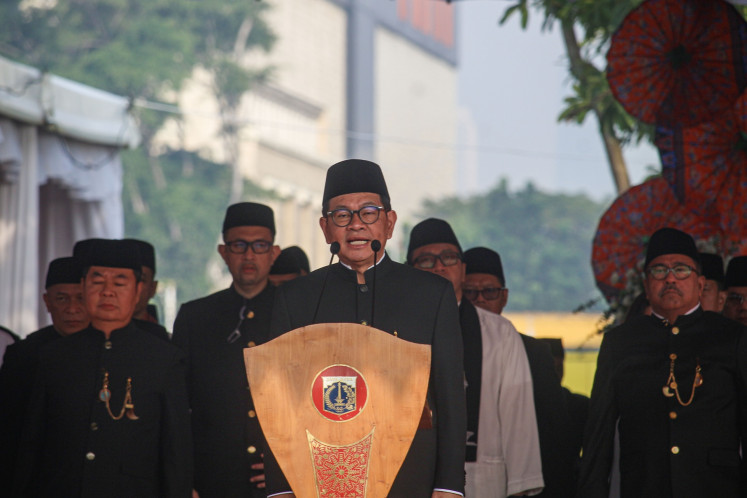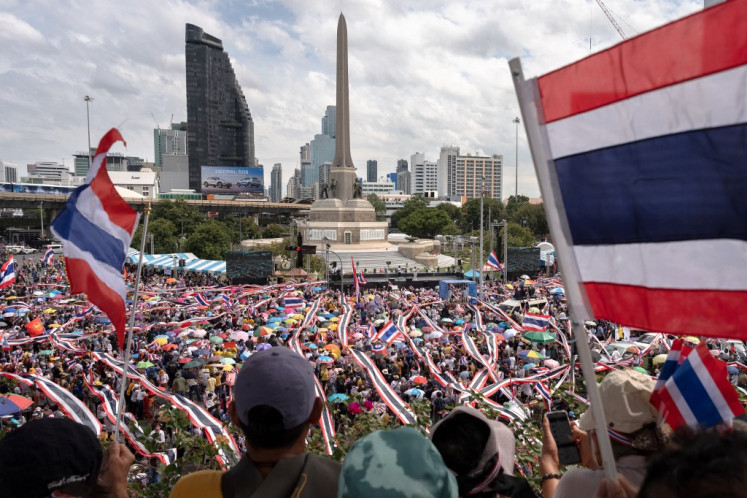Popular Reads
Top Results
Can't find what you're looking for?
View all search resultsPopular Reads
Top Results
Can't find what you're looking for?
View all search resultsUnderstanding WTO key to RI’s global leverage
Indonesian officials and policymakers need to gain a better understanding of the role and function of the World Trade Organization (WTO) so they can safeguard the nation’s interests should the country become involved in a trade dispute, a senior official has warned
Change text size
Gift Premium Articles
to Anyone

I
ndonesian officials and policymakers need to gain a better understanding of the role and function of the World Trade Organization (WTO) so they can safeguard the nation’s interests should the country become involved in a trade dispute, a senior official has warned.
A better grasp of the global trade governing body would increase Indonesia’s leverage in international commerce.
Trade Ministry Director General for International Trade Negotiations Iman Pambagyo said Indonesia had been involved in a number of disputes, both as complainant and responder.
Data from the ministry shows that between 2014 and 2018, Indonesia has been involved in five cases as a responder, meaning that other countries have filed complaints against Indonesia because its policies have been considered counterproductive under the WTO treaty.
“The enhancement of understanding among the state apparatus [regarding the WTO] is very important,” Iman said during a seminar on Thursday. “With better understanding, Indonesia will be able to safeguard its national policies while also ensuring they are in line with WTO regulations.”
As a complainant, Indonesia lost three of five cases between 2014 and 2018. Its latest case was when the United States and New Zealand filed a complaint against Indonesia, accusing Jakarta of unfair practice for its restriction on horticultural and animal product imports.
After the WTO ruled against Indonesia last year in the case, the US filed in August a US$350 million sanction request against Indonesia through the WTO. The US said the amount was an estimation of its losses incurred from Indonesia’s restrictive trade measures.
However, the US withdrew the complaint several weeks later.
According to data from the ministry, the WTO also ruled against Indonesia on disputes regarding the importation of chicken and chicken products filed by Brazil in 2014, and on the importation of beef, also filed by Brazil in 2017.
Meanwhile, the other two disputes are still ongoing. The cases were filed by the European Union in 2014 regarding clove cigarettes and by Taiwan and Vietnam in 2015 on safeguarding allegations of certain types of iron and steel.
“The horticultural [import restriction] case between Indonesia and the US and New Zealand should serve as a valuable lesson for us so that in the future, the government’s policy formulation will not violate and will remain in line with international commitments,” said Iman.
Additionally, he said one thing that Indonesia should watch out for in its activities under the WTO was antisubsidy instruments, which were used by countries as trade remedies.
“Since the WTO was established, the application of antisubsidy agreements has been frequent and is not showing any signs of slowing down,” said Iman.
Trade Ministry Director for Trade Security Pradnyawati said WTO member countries had launched as many as 486 inquiries into antisubsidy measures since the organization was established in 1995.
More than half of the inquiries revealed the countries’ countervailing duties, she said, adding that Indonesia itself had been implicated in nine of them.
Therefore, it was important for policymakers to understand what kind of subsidies were allowed
by the WTO treaty and which were not.
“A good understanding [of the definition of a subsidy] will help us answer the challenges of international trade,” she said.
Furthermore, Pradnyawati recommended that Indonesia open the way to the activation of Article 25 of the WTO’s Dispute Settlement Understanding (DSU), through which disputing parties may each appoint three arbitrators that later examine points from the complainant and responder to rule on the complaint.
Even though the mechanism has been stipulated by the organization, it takes the consensus of all 164 WTO members to activate and use it.
Indonesia, Thailand and Malaysia, she said, had attempted to adopt the mechanism through the International Tripartite Rubber Council (ITRC), even though the plan had not been executed until now.
“They have had a plan to form an arbitration body like that, but it is always easier said than done,” said Pradnyawati. “But we are going to try and see how the plan develops and we will learn from it.”
University of Indonesia professor and international law expert, Hikmahanto Juwana, said the opportunity for Indonesia to leverage its position at the WTO would depend on the former’s intention when coming up with policies and their supporting evidence.
“There are several things regarding leverage [that Indonesia should maximize],” Hikmahanto told The Jakarta Post via text message on Friday. “One, when drafting policy, make sure that it is aligned with the responsibilities from the WTO. Two, keep all supporting documents that will be able to be used as evidence later. Three, hire reliable lawyers who are able to articulate their arguments well.”

